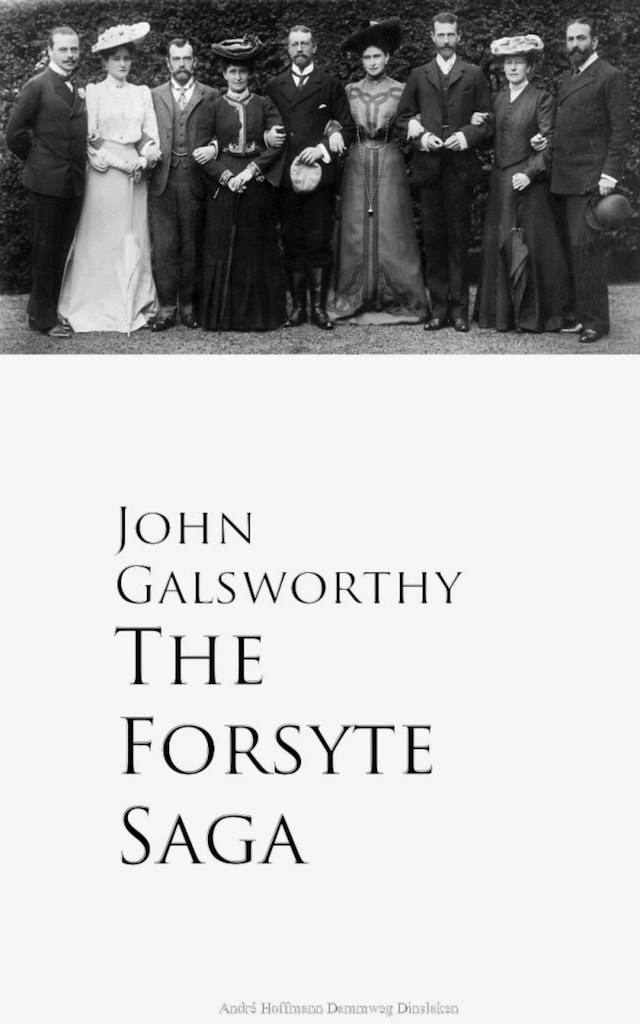
The Forsyte Saga
Description of book
"The Forsyte Saga" was the title originally destined for that part of it which is called "The Man of Property"; and to adopt it for the collected chronicles of the Forsyte family has indulged the Forsytean tenacity that is in all of us. The word Saga might be objected to on the ground that it connotes the heroic and that there is little heroism in these pages. But it is used with a suitable irony; and, after all, this long tale, though it may deal with folk in frock coats, furbelows, and a gilt-edged period, is not devoid of the essential heat of conflict. Discounting for the gigantic stature and blood-thirstiness of old days, as they have come down to us in fairy-tale and legend, the folk of the old Sagas were Forsytes, assuredly, in their possessive instincts, and as little proof against the inroads of beauty and passion as Swithin, Soames, or even Young Jolyon. And if heroic figures, in days that never were, seem to startle out from their surroundings in fashion unbecoming to a Forsyte of the Victorian era, we may be sure that tribal instinct was even then the prime force, and that "family" and the sense of home and property counted as they do to this day, for all the recent efforts to "talk them out."
So many people have written and claimed that their families were the originals of the Forsytes that one has been almost encouraged to believe in the typicality of an imagined species. Manners change and modes evolve, and "Timothy's on the Bayswater Road" becomes a nest of the unbelievable in all except essentials; we shall not look upon its like again, nor perhaps on such a one as James or Old Jolyon. And yet the figures of Insurance Societies and the utterances of Judges reassure us daily that our earthly paradise is still a rich preserve, where the wild raiders, Beauty and Passion, come stealing in, filching security from beneath our noses.
 John Galsworthy
John Galsworthy 1,082 Pages
1,082 Pages